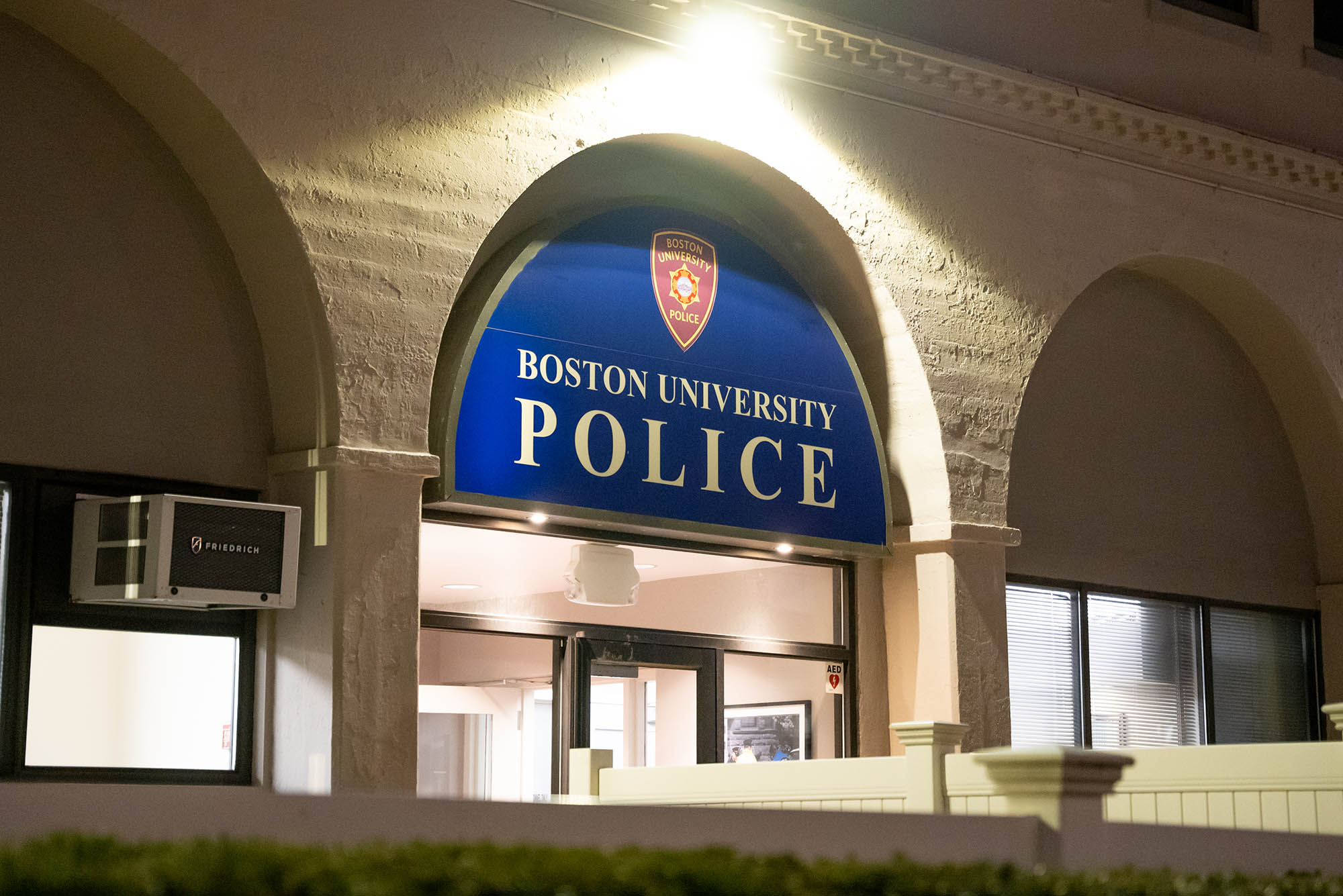BUPD to Undergo Assessment for Reaccreditation Next Week
Massachusetts Police Accreditation Commission will be on campus April 24–26 to conduct review

The Boston University Police Department, first accredited by the Massachusetts Police Accreditation Commission in 2011, is up for reaccreditation this spring The review process takes place every three years.
BUPD to Undergo Assessment for Reaccreditation Next Week
Massachusetts Police Accreditation Commission will be on campus April 24–26 to conduct review
A team of assessors from the nonprofit Massachusetts Police Accreditation Commission (MPAC) is scheduled to conduct an assessment of the Boston University Police Department (BUPD) for reaccreditation as an MPAC-accredited department starting Monday, April 24. Reaccreditation is done every three years.
MPAC is an 11-member board of law enforcement officials with demonstrated expertise in law enforcement and public safety initiatives appointed by the Massachusetts Chiefs of Police Association, the Massachusetts Police Association, and the Massachusetts Municipal Association.
Unlike the previous assessment, which had to be conducted virtually due to the pandemic, this year’s three-day review will take place in person. .
The assessors will review the department’s policy manuals to ascertain that BUPD’s practices conform to what their policies say they are doing and need to be doing in order to obtain reaccreditation. From April 24 to 26, the assessors will tour the facility and observe equipment to make sure it meets the highest safety standards. They will also examine evidence storing locations and determine that proper security measures are in place.
According to MPAC, its mission is “to ensure that the delivery of police services within the Commonwealth is at the highest level of professionalism and integrity.” Accreditation has “two major components: (1) the establishment of a body of professional standards for police agencies to meet, and (2) a voluntary assessment process by which agencies can be publicly recognized for meeting those standards considered best practices for the profession.” The program consists of 274 mandatory standards and 120 optional standards. To maintain accreditation status, a department must meet all applicable mandatory standards, as well as 60 percent of the optional standards (72 of 120). The BUPD was initially accredited by MPAC in May 2011 and is one of 15 college or university police departments so accredited.
Part of the voluntary process to acquire state accreditation is verification by the assessment team that a police department meets the commission’s standards. It consists of a self-initiated evaluation process, which police departments strive to meet and maintain using standards carefully selected to reflect critical areas of police management, operations, and technical support activities that have been established for the profession. These standards cover areas such as policy development, emergency response planning, training, communications, property and evidence handling, use of force, vehicular pursuit, prisoner transportation, and holding facilities.
“As a 10-year employee of BUPD and as the new accreditation manager, as well as an assessor for MPAC, I know all too well the demands and thresholds BUPD holds its officers to in order to achieve the reputation we have for professionalism,” says Lieutenant Patricia Murphy, training coordinator for BUPD. “MPAC allows us to maintain the highest level of integrity as we serve the BU community. It is also very important for us as a law enforcement agency to maintain our transparency and accreditation status.”
Achieving and maintaining accreditation is a recognition of law enforcement professional excellence. Anyone interested in learning more about the program is invited to contact Lieutenant Murphy at 617-358-6223.
Comments & Discussion
Boston University moderates comments to facilitate an informed, substantive, civil conversation. Abusive, profane, self-promotional, misleading, incoherent or off-topic comments will be rejected. Moderators are staffed during regular business hours (EST) and can only accept comments written in English. Statistics or facts must include a citation or a link to the citation.